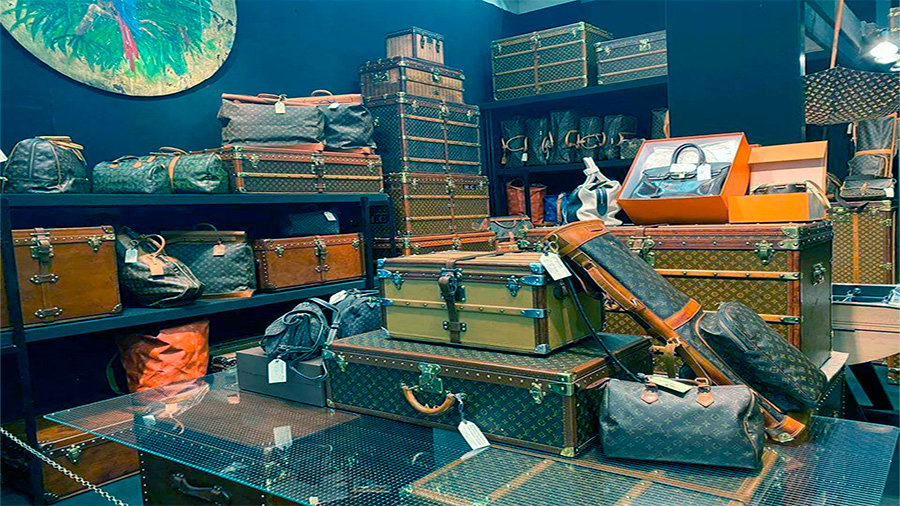Luxury auctions have become a hub for the wealthy to acquire rare and exclusive assets while simultaneously diversifying their investment portfolios. From rare watches and vintage cars to opulent properties, these auctions represent a unique intersection of wealth, exclusivity, and financial strategy. Beyond their aesthetic and historical appeal, many of these items are also considered sound investments, often appreciating in value over time. This article explores how luxury auctions function, the types of items most sought after, and why they have become a favored avenue for wealth management among high-net-worth individuals.
Understanding the Appeal of Luxury Auctions
Luxury auctions are not just about ownership but also about exclusivity, prestige, and long-term financial gains. The appeal lies in the rarity and history of the items, their potential to appreciate in value, and the excitement of competing in a high-stakes auction setting.
1. Exclusivity and Rarity
Luxury auction items are often one-of-a-kind or part of limited editions, making them highly sought after. Their scarcity ensures that only a select few can own them, driving up demand and value.
- Example: Paul Newman’s Rolex Daytona sold at auction for $17.8 million in 2017, largely due to its historical significance and association with the iconic actor.
2. Financial Returns
Many items purchased at luxury auctions are considered alternative investments, offering high potential returns compared to traditional assets like stocks or bonds.
- Example: Classic cars have shown consistent appreciation, with certain models increasing in value by over 300% in the past decade.
3. Prestige and Social Standing
Winning a high-profile auction is often seen as a status symbol, signaling financial prowess and impeccable taste. Participation alone places individuals in an elite circle of collectors and investors.

Popular Categories in Luxury Auctions
Luxury auctions cover a wide array of rare and valuable items, each offering unique investment opportunities and emotional appeal.
1. Rare Watches
Timepieces are among the most popular items at luxury auctions, valued for their craftsmanship, brand heritage, and rarity.
- Top Brands: Rolex, Patek Philippe, Audemars Piguet, and Richard Mille dominate the market.
- Investment Appeal: Rare models, especially vintage watches, often appreciate in value due to their limited production and historical significance.
Example: The Patek Philippe Grandmaster Chime 6300A fetched $31 million at auction in 2019, setting a record for the most expensive watch ever sold.
2. Vintage Cars
Classic and vintage automobiles are prized for their engineering, design, and historical value. Many wealthy individuals view these cars as both collectibles and sound investments.
- Desirable Models: Ferrari 250 GTO, Mercedes-Benz 300SL, and Bugatti Type 57SC are some of the most sought-after cars at auction.
- Market Trends: The vintage car market has seen steady growth, with rare models often appreciating significantly over time.
Example: A 1962 Ferrari 250 GTO sold for $48.4 million in 2018, making it the most expensive car ever auctioned.
3. Luxury Properties
Exclusive properties, including historic estates, beachfront villas, and urban penthouses, are a mainstay of luxury auctions. These properties often combine architectural significance with prime locations.
- Global Markets: Locations like Monaco, London, New York, and Dubai are hotspots for auctioned properties.
- Investment Potential: Properties in prime locations often appreciate in value, making them a cornerstone of wealth preservation.
Example: The “Bubble Palace” in France, designed by architect Antti Lovag, was listed for auction with a valuation exceeding $400 million.

The Auction Process: How It Works
Participating in a luxury auction involves several steps, from registration to bidding strategies. Understanding the process is crucial for maximizing opportunities and minimizing risks.
1. Registration and Pre-Auction Research
Potential bidders must register with the auction house, often providing proof of financial capacity. Pre-auction research is critical to understanding the value, history, and condition of the items.
- Tip: Attend previews or request detailed catalogs to assess the items of interest.
2. Setting a Budget
Establishing a clear budget helps bidders avoid overpaying or getting caught in the excitement of bidding wars. Consider additional costs, such as buyer’s premiums and taxes.
- Example: Most auction houses charge a buyer’s premium of 10-25% of the final bid price.
3. Bidding Tactics
Bidding strategies vary, from starting strong to waiting until the final moments. Each approach has its merits, depending on the competition and item value.
- Pro Tip: Use online platforms for real-time updates if you cannot attend the auction in person.
The Role of Auction Houses
Leading auction houses like Sotheby’s, Christie’s, and Phillips play a vital role in the luxury auction ecosystem. Their reputation ensures authenticity, transparency, and global reach.
1. Expertise and Valuation
Auction houses employ experts to authenticate items, assess their value, and provide accurate estimates. This reduces risks for buyers and ensures fair market pricing.
Example: A signed Picasso sketch authenticated by Christie’s fetched double its estimated value, thanks to expert validation.
2. Global Networks
These houses have a vast network of collectors, dealers, and investors, ensuring maximum exposure for items and competitive bidding.
- Impact: A global audience increases the likelihood of achieving record-breaking sales.
3. Secure Transactions
Auction houses provide secure payment channels and ensure proper documentation, protecting both buyers and sellers in high-value transactions.
Investing in Luxury Auctions: Risks and Rewards
While luxury auctions offer lucrative opportunities, they also come with risks. Understanding these factors is essential for making informed investment decisions.
1. Rewards
- Appreciation: Many luxury items increase in value over time, offering high returns.
- Diversification: Rare assets diversify portfolios, reducing reliance on traditional investments.
- Tangible Value: Unlike stocks, luxury items have intrinsic value and aesthetic appeal.
2. Risks
- Market Volatility: The value of luxury items can fluctuate based on market trends and economic conditions.
- Authentication Issues: Failing to verify an item’s authenticity can lead to significant losses.
- Illiquidity: Selling high-value items can take time, limiting quick access to cash.
3. Risk Mitigation
- Work with reputable auction houses to ensure authenticity and accurate valuation.
- Consult experts or appraisers before bidding on high-value items.
- Invest in items with proven historical appreciation to minimize financial risk.
Conclusion
Luxury auctions offer a unique blend of exclusivity, investment potential, and prestige, making them an attractive avenue for the wealthy. Whether acquiring rare watches, vintage cars, or luxurious properties, these auctions provide opportunities to own valuable assets while diversifying financial portfolios. However, success in luxury auctions requires thorough research, strategic bidding, and an understanding of market dynamics. By navigating this world carefully, investors can enjoy both the tangible and financial rewards that come with owning some of the world’s most coveted treasures.

